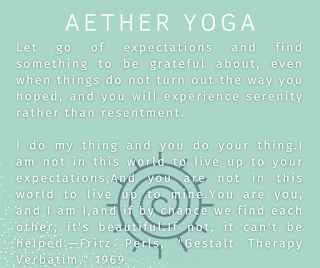The Inner Child
Embrace Your Inner Child
Have you ever thought about why you can’t move forward? Have you wondered why you sabotage yourself? Have you ever questioned why you so easily feel anxious, depressed, and self-critical?
Inside each of us, there’s an inner child that was once wounded. To avoid the pain, we’ve tried to ignore that child, but s/he never goes away. Our inner child lives in our unconscious mind and influences how we make choices, respond to challenges, and live our lives.
What exactly is this so-called inner child? Does it truly exist? And why should we care?
To begin with, the inner child is real. Not literally. Nor physically. But figuratively, metaphorically real. Your Inner Child is the echo of the child you once were. We were all once children, and still have that child dwelling within us. But most adults are quite unaware of this. And this lack of conscious relatedness to our own inner child is precisely where so many behavioral, emotional and relationship difficulties stem from.
We each have our own history and we have all been influenced by our environment, events, and the significant people around us. Our inner child has stored those memories and their impact upon us.
Up to the age of six years, our brain was functioning at a relatively slow pace —the Theta brainwave frequency of 4-7 cycles per second—which is a very ‘receptive’ brainwave state, and we would have been profoundly affected by our experiences.
We will have made ‘decisions’ at a subconscious level, about how we ‘should’ be and what we ‘should’ do to be seen as OK and to be allowed to stay around and to ‘survive’ in our families.
Our later experiences will have reinforced these beliefs and formed our own ‘Script’ for how our life ‘should’ be. We carry these immature scripts and decisions with us into adulthood — when they run our lives more than 90% of the time.
It, therefore, makes sense that we should revisit the experiences of the child we once were, and to find out what our own script says about our life and the unfolding drama we have been re-creating and repeating.
Not doing so will result in our playing out of the same unexamined script and drama over and over again.
The fact is that the majority of so-called adults are not truly adults at all. We all get older. But, psychologically speaking, this is not adulthood. True adulthood hinges on acknowledging, accepting, and taking responsibility for loving and parenting one's own inner child. For most adults, this never happens. Instead, their inner child has been denied, neglected, disparaged, abandoned, or rejected. We are told by society to "grow up," putting childish things aside. To become adults, we've been taught that our inner child--representing our child-like capacity for innocence, wonder, awe, joy, sensitivity, and playfulness--must be stifled, quarantined, or even killed. The inner child comprises and potentiates these positive qualities. But it also holds our accumulated childhood hurts, traumas, fears, and anger.
First, one becomes conscious of his or her own inner child. Remaining unconscious is what empowers the dissociated inner child to take possession of the personality at times, to overpower the will of the adult. Next, we learn to take our inner child seriously and to consciously communicate with that little girl or boy within: to listen to how he or she feels and what he or she needs from us here and now. The often frustrated primal needs of that perennial inner child--for love, acceptance, protection, nurturance, understanding--remain the same today as when we were children. As pseudo-adults, we futilely attempt to force others into fulfilling these infantile needs for us. But this is doomed to failure. What we didn't sufficiently receive in the past from our parents as children must be confronted in the present, painful though it may be. The past traumas, sadness, disappointments, and depression cannot be changed and must be accepted. Becoming an adult means swallowing this "bitter pill," that, unfortunately for most of us, certain infantile needs were, maliciously or not, unmet by our imperfect parents or caretakers. Those days are over. What was done cannot be undone. We should not as adults now expect others to meet all of these unfulfilled childhood needs. They cannot. Authentic adulthood requires both accepting the painful past and the primary responsibility for taking care of that inner child's needs, for being a "good enough" parent to him or her now--and in the future.
May the adult part of the personality practices and learns to relate to the inner child exactly as a good parent relates to a flesh-and-blood child, providing discipline, limits, boundaries, and structure. These are all--along with support, nurturance, and acceptance--indispensable elements of loving and living with any child, whether metaphorical or actual. By initiating and maintaining an ongoing dialogue between the two, a reconciliation between inner child and mature adult can be reached. A new, mutually beneficial, cooperative, a symbiotic relationship can be created in which the sometimes conflicting needs of both the adult self and inner child can be creatively satisfied.
Has your adult self spent time with your inner child today?
Please not hold on to shame and regret. affirm:
“I love you and accept you exactly as you are. I appreciate you and respect you. I feel affection and tenderness for you. You are free to do what you like, provided you are not hurting anybody. You are capable and strong. Your self-worth is the same as that of every other soul, no more no less. I hear you, You didn’t deserve this, I am sorry, I forgive you. You did your best, you could at the time. ”






